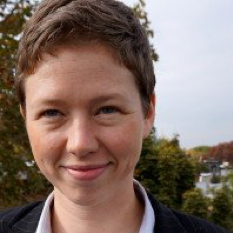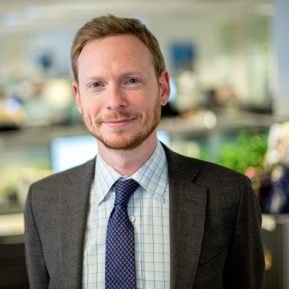Below are brief testimonials from some of the Department of Philosophy alums who have gone on to careers at non-profits and in the public sector, describing in their own words how studying philosophy at the University of Chicago has shaped their careers and day-to-day work.
Megan Wade, 350 Seattle (BA 2005)

What are our obligations to future generations, to other species, or to the land? Can we make rational plans about the course of our lives, or the course of a given day, in an era of heightened uncertainty and instability? Theoretical questions, sure, but ones that carry obvious weight when your job is persuading and organizing others to take action on climate change. I've also found the skills gained through my study of philosophy to be not only practical, but sometimes surprisingly popular. Recently at a meeting, another participant spoke for several minutes, trying to explain an idea to the group. At last they stopped and looked at me and asked, "Hey Meg, can you do that thing you do, that summarizing thing that makes it all clear?" I smiled, "Yeah, I think you were trying to propose that ..."
Daniel Nasaw, Managing Editor, Capital Journal Website, The Wall Street Journal (BA 2002)

A good journalist needs to look underneath a news story, to analyze its underpinnings and place it in a cultural, intellectual and historical context. From Heraclitus to Husserl, my University of Chicago undergraduate education in philosophy prepared me to wrest ideas from the mundane, consider them in the abstract and reapply them elsewhere, "to ask," borrowing a metaphor from Heidegger, "the first of all questions." In "Being and Time," Heidegger describes Dasein—roughly, the Being of a human being—as thrown helplessly out of its past and into its future. "Its own past . . . is not something which follows along after Dasein, but something which already goes ahead of it." For a journalist, especially an editor guiding news coverage, it isn't sufficient merely to grasp what's going on and, proximately, why. Rather, a journalist must endeavor to understand how cultural and political-economic currents landed us all here and where we're going—how America's past "already goes ahead of it." A history degree would have offered a set of data points useful for reference and a means of systematizing them, and a journalism degree (though not at UChicago!) training in a craft I ultimately got paid to hone. But my philosophy degree taught me something even greater: How to think.
